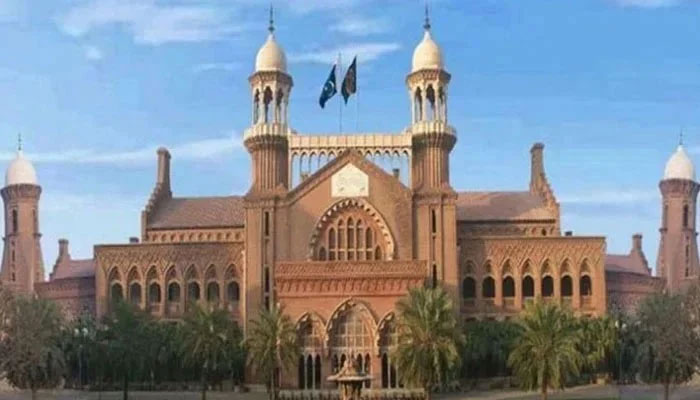LHC strikes down colonial-era sedition law
Constitution of Pakistan gives every citizen right to freedom of expression, argue petitioners in LHC
LAHORE: Justice Shahid Karim of the Lahore High Court on Thursday invalidated Section 124-A of the Pakistan Penal Code, commonly known as the sedition law, introduced in 1860 to suppress political opponents.
The section criminalises anyone who attempts to bring into hatred or contempt or excites disaffection towards, the federal or provincial governments established by law, through words, signs, or visible representation. The court’s decision was based on petitions filed by citizens, including Salman Abuzar and Haroon Farooq, who argued that the sedition law was being used by the government to silence its critics for political purposes.
The petitioners claimed that the sedition law, a remnant of British colonial rule, violates the fundamental rights of freedom of expression enshrined in the Constitution, and serves as an oppressive tool for the suppression of dissent, free speech, and criticism. The court agreed with the petitioners and struck down the sedition law, citing its inconsistency with articles 8, 9, 14, 15, 16, 17, and 19(a) of the Constitution.
The court’s decision could have far-reaching implications for journalists, politicians, and activists who have faced prosecution based on sedition charges, including Javed Hashmi, the late Arshad Sharif, Khawar Ghumman, Adeel Raja, Sadaf Abdul Jabbar, Javed Hashmi, Shahbaz Gill, Mohsin Dawar and Ali Wazir.
-
 Patriots' WAGs Slam Cardi B Amid Plans For Super Bowl Party: She Is 'attention-seeker'
Patriots' WAGs Slam Cardi B Amid Plans For Super Bowl Party: She Is 'attention-seeker' -
 Martha Stewart On Surviving Rigorous Times Amid Upcoming Memoir Release
Martha Stewart On Surviving Rigorous Times Amid Upcoming Memoir Release -
 Prince Harry Seen As Crucial To Monarchy’s Future Amid Andrew, Fergie Scandal
Prince Harry Seen As Crucial To Monarchy’s Future Amid Andrew, Fergie Scandal -
 Chris Robinson Spills The Beans On His, Kate Hudson's Son's Career Ambitions
Chris Robinson Spills The Beans On His, Kate Hudson's Son's Career Ambitions -
 18-month Old On Life-saving Medication Returned To ICE Detention
18-month Old On Life-saving Medication Returned To ICE Detention -
 Major Hollywood Stars Descend On 2026 Super Bowl's Exclusive Party
Major Hollywood Stars Descend On 2026 Super Bowl's Exclusive Party -
 Cardi B Says THIS About Bad Bunny's Grammy Statement
Cardi B Says THIS About Bad Bunny's Grammy Statement -
 Sarah Ferguson's Silence A 'weakness Or Strategy'
Sarah Ferguson's Silence A 'weakness Or Strategy' -
 Garrett Morris Raves About His '2 Broke Girls' Co-star Jennifer Coolidge
Garrett Morris Raves About His '2 Broke Girls' Co-star Jennifer Coolidge -
 Winter Olympics 2026: When & Where To Watch The Iconic Ice Dance ?
Winter Olympics 2026: When & Where To Watch The Iconic Ice Dance ? -
 Melissa Joan Hart Reflects On Social Challenges As A Child Actor
Melissa Joan Hart Reflects On Social Challenges As A Child Actor -
 'Gossip Girl' Star Reveals Why She'll Never Return To Acting
'Gossip Girl' Star Reveals Why She'll Never Return To Acting -
 Chicago Child, 8, Dead After 'months Of Abuse, Starvation', Two Arrested
Chicago Child, 8, Dead After 'months Of Abuse, Starvation', Two Arrested -
 Travis Kelce's True Feelings About Taylor Swift's Pal Ryan Reynolds Revealed
Travis Kelce's True Feelings About Taylor Swift's Pal Ryan Reynolds Revealed -
 Michael Keaton Recalls Working With Catherine O'Hara In 'Beetlejuice'
Michael Keaton Recalls Working With Catherine O'Hara In 'Beetlejuice' -
 King Charles, Princess Anne, Prince Edward Still Shield Andrew From Police
King Charles, Princess Anne, Prince Edward Still Shield Andrew From Police




